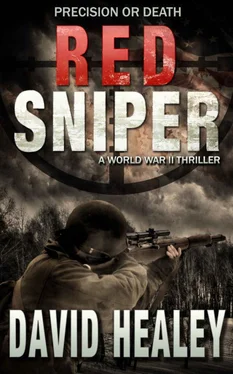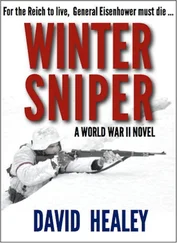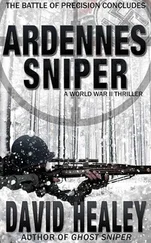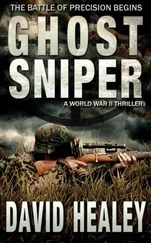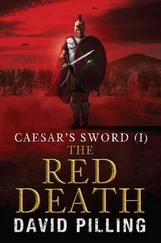“The girl—”
“Girl? Do you think I give a shit if you screw some German girl? No, I might give you a medal for that. No, Barkov, you stupid Oyabuk , your crime is that you dared to put a hand on this officer here, who hesitated in shooting you because he still believes in the milk of human kindness. I have no such frailties.”
Barkov started to speak, but thought better of it.
The commissar went on, “The only reason I am not going to shoot you right now is because of your service. I know who you are, Barkov. In your drunkenness, you have made a serious error in judgment that will require some reeducation.” He made an expression that he must have thought was a smile, but the sight of his perfectly square teeth gave even Barkov a shiver. “I have new duties for you now that the fighting is over.”
“Yes, Comrade Commissar.” Barkov felt a sinking feeling. Whatever a commissar had in mind couldn’t be good. “What about my men?”
The commissar nodded at Murushko and the Mink. “You can bring those two along. They look dependable. Now, give the commissar his pistol back.”
Barkov did as he was told, handing back the Tokarev TT-33.
Then the commissar turned to the younger officer. “Make yourself useful, Comrade. Shoot these others.”
Whitlock’s first impression of the POW camp was not what he had expected. In his mind’s eye, he had pictured something with tall barbed wire fences and guard towers, a muddy yard, snarling Rottweilers on short leashes, and starving prisoners—like those old Civil War photos you sometimes saw of a hell on earth like Andersonville.
Instead of horrors, he found bored prisoners and equally bored guards. The sewage plant back home had a taller chain link fence, with more barbed wire on top. Instead of drab buildings, the prison barracks were neatly whitewashed. Concrete walkways crisscrossed the grassy yard. It wasn’t exactly cheerful, but it could have been a lot worse.
“Is this a prison camp?” Whitlock wondered out loud. “There’s not a guard tower was in sight.”
The older guard riding with him in the back of the truck gave him what might have been a look of pity. Whitlock had almost forgotten that he spoke English.
“Where would you go?” the guard asked. “You are in the middle of Germany!”
So many Allied airmen had been taken prisoner by this late hour of the war that no one even bothered to interrogate him beyond a few rudimentary questions. The processing of a new prisoner was brief and Whitlock found that he was treated diffidently enough by the prison guards, most of whom were either young enough to be in junior high school or old enough to be the same age as Whitlock’s father, or possibly his grandfather. The fittest soldiers were likely off at the front, rather than guarding POWs.
Whitlock was submitted to a brief questioning by an officer who was going through the motions. The officer concluded by giving him some advice: “Don’t do anything stupid, and you’ll be home again soon.”
If the camp had been south of the Elbe River, the officer would have been right. As it turned out, he couldn’t have been more wrong.
After that initial interrogation, an officious sergeant took his name and compared it to the list presented to him by the guard from the truck. Once the sergeant was satisfied that all prisoners were accounted for, they were each given a bowl, a spoon, and a blanket—which, judging from the moth-eaten holes and the smell, was used.
There were no prison uniforms anymore, so Whitlock kept his grungy uniform. He didn’t mind the lack of prison uniforms, but there were also no coats, despite the fact that the air was chilly. He had lost his leather bomber to the young soldiers. To stay warm, Whitlock draped his thin blanket across his shoulders.
The sergeant had the new POWs line up and all the prisoners received a cursory search. They submitted silently to being patted down. The sergeant even made Whitlock take off his boots, and he worried for a moment that he would be left barefoot. The German was only interested in seeing if Whitlock was smuggling anything. Satisfied, the sergeant nodded and moved on.
He was led to one of the barracks by a guard who was clearly not yet old enough to shave or even to get a pimple, and pointed to the door. The boy carried an old rifle slung on his bony shoulder and Whitlock realized it would be a simple matter to overpower him and take away the weapon. But then what? As the guard on the truck had pointed out, Whitlock was in the middle of Germany.
Whitlock slipped the blanket off his shoulders in an attempt to look more presentable. Carrying his newly issued bowl and spoon bundled up in the blanket, he crossed the threshold into the dark interior of the barracks.
The prison barracks smelled like a locker room, or just about any barracks that he had ever been in—the atmosphere was thick with the odor of stale sweat and old farts. He blinked as his eyes adjusted to the gloom. He could begin to see that several heads had turned his way, watching him curiously. Most of the men lay on bunks, but a few huddled around a stove in the corner, sitting on upturned crates.
One of the men approached. “Aren’t you a sorry bastard,” the man said, and Whitlock’s guard went up at the words, although the man’s tone was friendly enough. “It looks like you had the bad luck to be one of the last prisoners taken in this war.”
For the first time since those terrifying moments when his plane had begun to disintegrate around him, Whitlock had to smile. “I’ve been thinking the same thing ever since I found myself staring into the barrel of a Mauser held by some kid.”
The man extended a hand, and Whitlock juggled his bundle to take it. “Max Macdonald,” the prisoner said. “Captain in the Army Air Corps. I’ve been here, fifteen months and twelve days, which makes me the ranking officer.”
“Good to meet you, sir,” Whitlock said.
“Oh, none of that.” MacDonald said jovially. He had a British air about him, as if he had been spending a lot of time with the Englishmen in the barracks next door. Whitlock half expected the man to click his heels together. “What I mean to say is that it is good to meet you, too, but we don’t stand much on formality around here. We leave that to the Krauts.”
Another man came up. “Bill Ramsey. Lieutenant, Army Air Corps. Here, let me help you with that,” he said, taking the bundle from Whitlock. “You can have Hinson’s bunk.”
“Won’t Hinson be needing it?”
“It’s not likely, considering that he went to the Great Beyond last week.” Ramsey looked him up and down. “How are you feeling? Any injuries we should tend to?”
“No, I’m fine.” Whitlock wanted to add, unlike my crew . He had no idea whether or not they had made it. None of the Germans had been able to tell him. He felt bad about it. A thought occurred to him. “Was Hinson sick?”
MacDonald’s face clouded. “Well, in a way he was,” MacDonald said. “He tried to climb the fence, and the Germans shot him.”
“He was trying to escape?”
“Something like that.” MacDonald sighed. “You might say he committed suicide. The poor bastard had had enough.”
Ramsey put Whitlock’s bundle down on the hard planks of the bunk. “Home sweet home,” he said. “Welcome to Stalag Twenty-Two B. That’s the Germans for you, giving their prison camps such efficient names. Unofficially, we like to call it the Hotel Hitler. Just don’t let the guards hear you say it.”
“That sounds like a good name for it.” Whitlock smirked. “So, how long have you been in this place?”
“Since last summer,” Ramsey said. “Too long.”
“One day seems too long right now.”
Читать дальше
